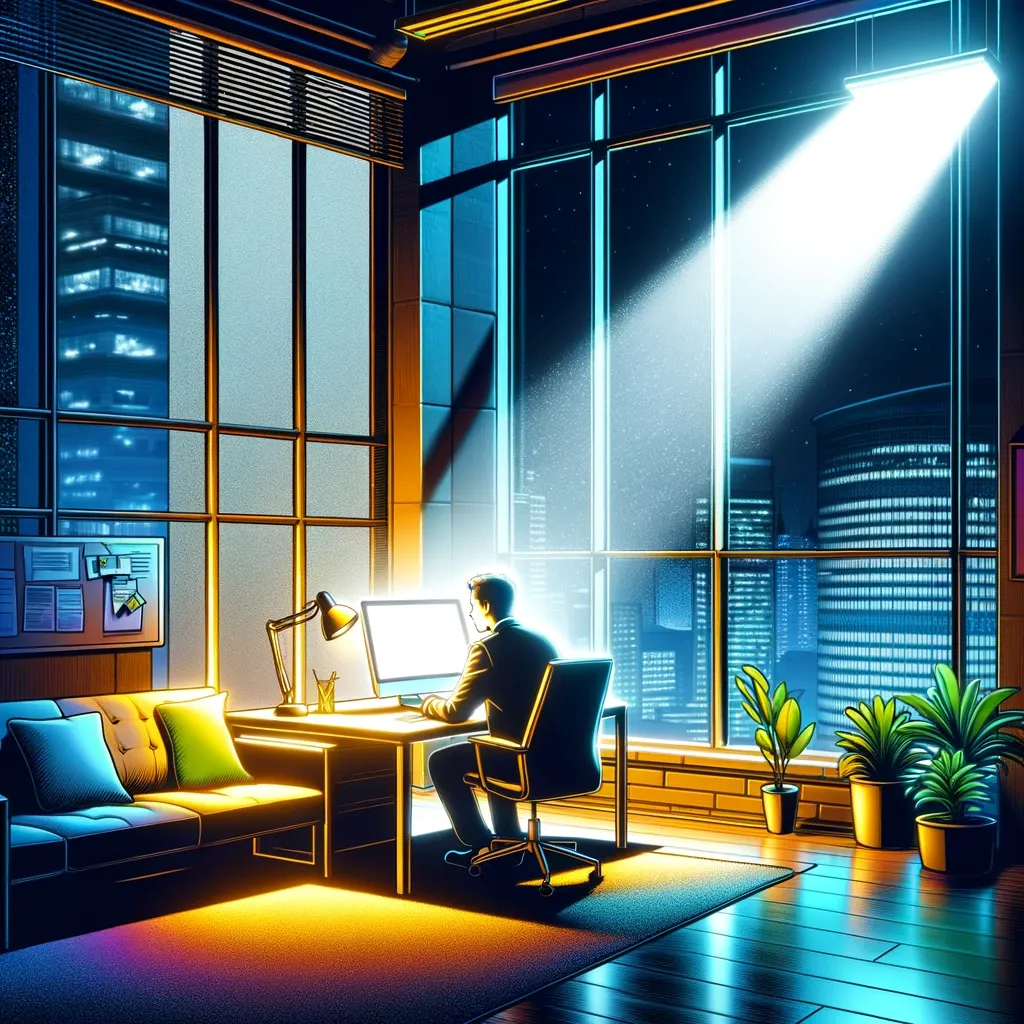Britain's Brighter Future
Would Britain's future be brighter with better winter time lighting leading to productivity gains? I argues it's worth at least finding out.

It seems bright as day to me that lighting makes us more productive and alert. In winter when the sunsets at 4pm, often my body thinks it’s bed time around 7pm. Although intuitively understood, there's a surprising lack of research quantifying this effect, most research focuses on the mood impact rather than productivity impact. So how much more productive are we with longer daylight hours? If daylight enhances our alertness and productivity, what is the extent of this impact? Anecdotally, I think I probably sleep an extra hour in winter time with the lack of sunlight. I also feel less alert and quick thinking. I do think this (case study of one) hugely affects my productivity.
“Low mood and low energy levels during the short dark days of winter may have always been an expected part of life for those living far from the equator, they were first identified as a treatable clinical condition during the 1980s” - Seasonal Affective Disorder: An Overview of Assessment and Treatment Approaches
SAD’s was first identified as a treatable clinical condition in the 1980s, but the winter blues have existed as a part of humanity's understanding of the seasons. According to the Seasonal Affective Disorder: An Overview of Assessment and Treatment Approaches, in the United Kingdom, 20% of people experience winter blues every year.
Last year in January I did a trial of spending one month in the sunniest place in close proximity to Britain, the Canary Islands. I felt SO energised and incredibly productive. Compared to this year, where I decided I’d try tough it out in the British winter and just take more mid day walks and diligently take my vitamin D supplements - the personal difference is stark. Obviously there are many other factors here but say even if we are able to stay alert and focused 20% more with longer daylight hours than in winter, this seems like a huge opportunity for progress.
After hearing wellness guru - Andrew Huberman - talk about morning sunlight being one of the biggest impacts on wellbeing and productivity, I decided to give it a go myself, yet my daily winter walks in London at 200 lux weren’t cutting it (considering on a bright summer's day you can expect ~100,000 lux), I thought there must be other answers! I then read various blog posts on lighting to beat the winter blues. So next I tried to imitate sunlight indoors. I installed a light-splitter and 4 x 100W equivalent bulbs, providing 8x the amount of lumens I previously had in my office. Again, anecdotal evidence, but I do feel much more alert. I feel like I can keep working past the day time hours, much more akin to my summer schedule.
Say that we were able to artificially create the impact of sunlight through bright lights in workplaces (totally doable) and we ended up with a 20% increase in productivity across the nation for the winter months, an average of 10% across the year. I'm not suggesting that people work 10% longer; rather, they could be 10% more alert and focused, they'd have 10% more focused time in their day. Say theoretically if this directly transfers to the UK GDP this would be a huge impact 10% (though of course it doesn’t work quite that easily).
This may be a big jump but Britain has experienced a significant stagnation over the past decade, with our GDP consistently hovering around 3 trillion pounds per year (graph below). With this level of stagnation we’ve got to try all the quirky ideas, and I don’t even think this one is that farfetched. A 10% increase would be truly incredible. Even if it is an order of magnitude less than my hope of 10%, a 1% increase in GDP would still be more economic progress for Britain than we’ve had over the past 17 years. Something I think is worth at least a shred of research. Once there is evidence of the bright path forward for Britain, it’s in every employers direct interest and incentive to implement brighter lighting if the research does show sufficient productivity gains, so all that’s really needed is the research to exist in the first place.
British GDP per Capita - data.worldbank.org/
Say bright indoor lighting does increase GDP by the conservative 1%, that would be the equivalent of 31 billion USD economic value created, seems worth the one study to me.
It is completely possible I’ve missed some key research on the impact lighting has on productivity, if I have, I’d love to see it - please do comment below! I am genuinely curious how much an increase in productivity there is to be had with better lighting for the general population, and not just the current study of one (me). I propose someone in Britain does a randomised control trial for the impact of brighter lights in winter on productivity - it might be the spark Britain needs to get out of this stagnation.
This blog post is a submission to the TxP Progress Prize.
Britain is stuck. A new movement around science, technology and economic progress offers a way forward. It champions abundance, not scarcity; state capacity, not decline; and supply-side action alongside demand-side subsidy. Above all, it is proudly solutionist. It recognises that golden ages don’t happen by accident: they are made by political choices.